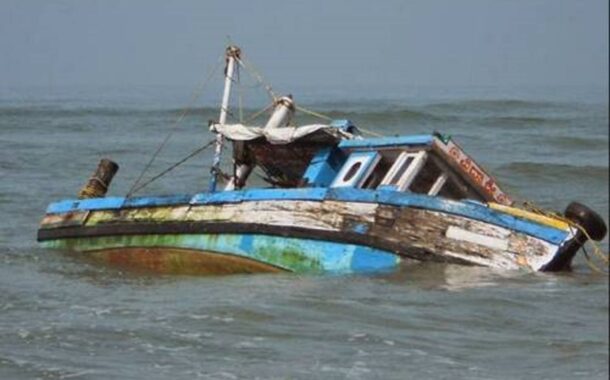34 Lives lost through inland water transport accidents — Audit Report
A Performance audit report conducted by the Auditor-General has exposed safety issues and regulatory shortfalls in the country’s inland water transport sector.
The report, covering 2019 to 2023, highlights the alarming frequency of accidents on the country’s waterways, resulting in significant loss of lives and properties.
In all, 23 watercrafts made up of fishing and transport crafts were involved in accidents which claimed 34 lives and properties worth millions of cedis during the period.
This is in spite of the GH¢94.77 million spent in the last four years by the Ghana Maritime Authority (GMA) to implement safety measures on inland waterways.
This was discovered in the latest performance audit report on the safety of inland water transport on the Volta Lake in 2024.
The report blamed the prevailing safety and regulatory concerns on the country’s waterways to the inactivity of GMA to monitor and address the challenges.
Waterway transport
Inland water transport (IWT) is a mode of movement of people and goods by means of watercraft such as pontoons, river ferries, boats and canoes along waterways such as rivers, lakes and canals.
It accounts for approximately five per cent of the country’s transport system. It is the major source of transport for people on islands and along river bodies in the country.
The most prominent inland waterway in the country is the Volta Lake which traverses the south to the north, with rivers such as Pra, Ankobra and Afram, also providing services.
A report by the GMA indicates that 1.1 million passengers and farm produce, including fish, amounting to 112,000 tonnes are transported on the Volta Lake annually.
However, IWT operations have been characterised by accidents resulting in casualties that diminish the safety and attractiveness of the system.
Audit purpose
The Auditor-General, in line with Article 187 (2) of the 1992 Constitution and Section 13 (e) of the Audit Service Act 2000, (Act 584), commissioned the audit on the safety of inland water transport in the country.
It was to determine whether GMA’s safety protocols were ensuring the safety of passengers and goods transported on the inland waterways.
The audit covered the period 2019 to 2023 and was carried out from January to March 2024. It was carried out at GMA’s office in Accra, Bono East, Oti and Volta regions.
The team also visited the Adawso landing site in the Eastern Region, where GMA and Naval Task forces, had no presence to assess the level of compliance with the safety protocols.
Safety practices
The GMA’s standard safety practices require watercraft owners and operators to use their crafts for the purposes for which they are designed, that is watercraft designed for fishing should not be used to transport passengers.
“We observed during our visit to the selected landing sites between March 4 and 22, 2024, that 17 watercrafts designed for fishing which are not allowed to transport passengers were being used to transport a total of 115 passengers and goods on the inland waterways,” the report said.
It was also observed that the fishing crafts were not employed for commercial transport purposes but rather used to convey people to markets on designated days.
The GMA officials and the Naval Task Force explained that they allowed that to happen because it was their main means of transport along the waterways.
The operators were allowed to transport a maximum of six persons on a fishing craft irrespective of the size of the family. However, some carried more than six persons.
Accidents
The report further revealed that fishing watercrafts were involved in more accidents, causing loss of lives and goods than transport watercrafts.
In all, 16 fishing crafts and seven transport crafts capsized, resulting in the deaths within the audit period.
It came out that the authority failed to effectively monitor watercraft operators, thus allowing fishing vessels to transport people and goods without adhering to safety guidelines, contrary to their intended purpose.
In their response, the GMA accepted the recommendations of the report and said they had developed a draft Inland Water Regulation waiting for approval of Parliament to regulate activities in the inland water bodies and impose sanctions for infractions.



